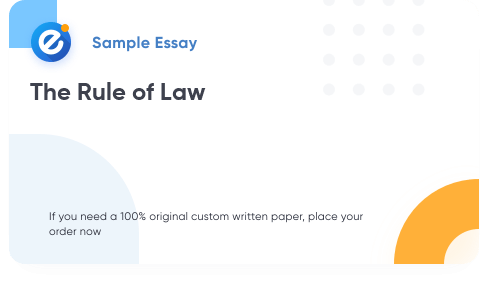
The Common Law doctrines of both the United Kingdom and the United States of America unequivocally state that a drug or alcohol intoxicated person to the degree that he or she cannot comprehend the nature of their actions is granted by the law to seek the entered contract being void (Miller, Franklin, and Wertheimer). Both the doctrine and the contemporary legal practice stipulate that the person, who is intoxicated to the point that he does not understand his deeds, is equal to mentally incapacitated subjects (insane people and lunatics) and minors.
However, it must be undoubtedly noted that the ‘alcohol voidance’ may be accepted by the other party to the contract with the high degree of certainty; or people should know that the rate of the counteragent’s mental state affected by the consumption of the alcohol. If the party is strongly opined that he deals with an entirely sober counteragent, the alcoholic is not relieved from the contractual obligation on the grounds of being intoxicated at the moment of entering into the contract. Moreover, these agreements are not automatically void, i.e. the court may invalidate only at the plaintiffs discretion. Hence, the plaintiff must expressly state that he/she is willing to cancel the agreement (subject to the provision that the respective consent has not been given by the guardian or the official representative of the intoxicated person).
Calculate the cost of essay
The Merits of the Case
The current issues in dispute involve three facts. First and foremost, the plaintiff had to evidence that she was intoxicated namely at the moment of the entering into the agreement (posing her signature on the paper). As inferred in Johnson v. Harmon, 1876 by the Supreme Court of the District of Columbia, USA “the issue is to determine whether the claimant at the time of the entering into the contract was in the capacity of executing a contract” (Supreme.justia.com). In accordance with the statement of the facts to the present case, the allegedly aggrieved person was in the state of drunkenness at the moment of the entering into the contract.
The second facet of the merits is whether the plaintiff was totally or absolutely intoxicated. Partial intoxication, or in other words the intoxication to the degree the person is merely excited by the alcohol but his ability to think and to reason remains intact does not serve as a basis for the voidance of the contract. In Wilson v. Bigger the court found that the contractual obligation is given in a state of clouded mind and is not valid. The two facts indicate that the aggrieved party was in the state of complete drunkenness and her mind was obscured respectively. It is stated that she has consumed 100-proof vodka. According to the medical examination, this dose is enough to the 30 years old lady, who is weighting 60 kilos, to affect her mental and reasoning processes fundamentally, so that her thinking of the reasonably prudent person is totally blocked. The second proof is that according to the mortgage given by Williamson to Smith, the aggrieved party virtually sold her house for $ 500, while the market value offered by the competitors of the attorney was $ 17 000. The normally functioning capacitated person cannot perpetrate these acts, as they contradict the logic of the ordinary reasonably prudent person. Therefore, the seller was totally drunk at the time of the transaction.
Limited Time
special offer
The third fact to be proven is that the buyer was aware of the seller’s mental state when the contract was executed. Statement of the facts explicitly tells that the attorney sued the Matthews on the grounds of lack of capacity due to the alcohol intoxication of her client. These actions manifest that he completely admits that her client was not capacitated while entering the contract. Then, he entered the contract himself with his client. In other words, he entered the contract with the person who he tried to plea incapacitated himself.
The Judgment
The unanimous opinion of the court was delivered by the judge Bradley. The court ruled in favor of the plaintiff, as the plaintiff managed to prove that all three integral parts of her defense was proven. Moreover, after Mr. Smith appealed, the Court of Appeal of Alabama affirmed the decision of the court. In the present case alcoholism serves as a sufficient ground for declaring the contract void.
Ethical Issues of the Case
When judgment was delivered, the case might have been over for the ordinary defendants or plaintiffs. However, in the present case the flagrant ethic violation has been perpetrated by the attorney. In fact, the attorney has broken the fiduciary duty he owed his client and committed a number of other serious ethical wrongdoings. He took advantage of his incapacitated client and used it to his personal benefit, violating the provisions of the American Bar Association Ethic Rules. Besides, the information that his client was penchant to alcoholism was not only disclosed, but also used by the attorney. Under any circumstances the information regarding clients’ state of health shall be considered confidential and may be neither disclosed, neither used to the detriment of the client.
Benefit from Our Service: Save 25%
Along with the first order offer - 15% discount, you save extra 10%
since we provide 300 words/page instead of 275 words/page
Overall, the facts that the attorney intently entered into fraudulent and void contract and then even tried to protect his scheme in the court of law signify that the American Bar Association must immediately revoke his license.

